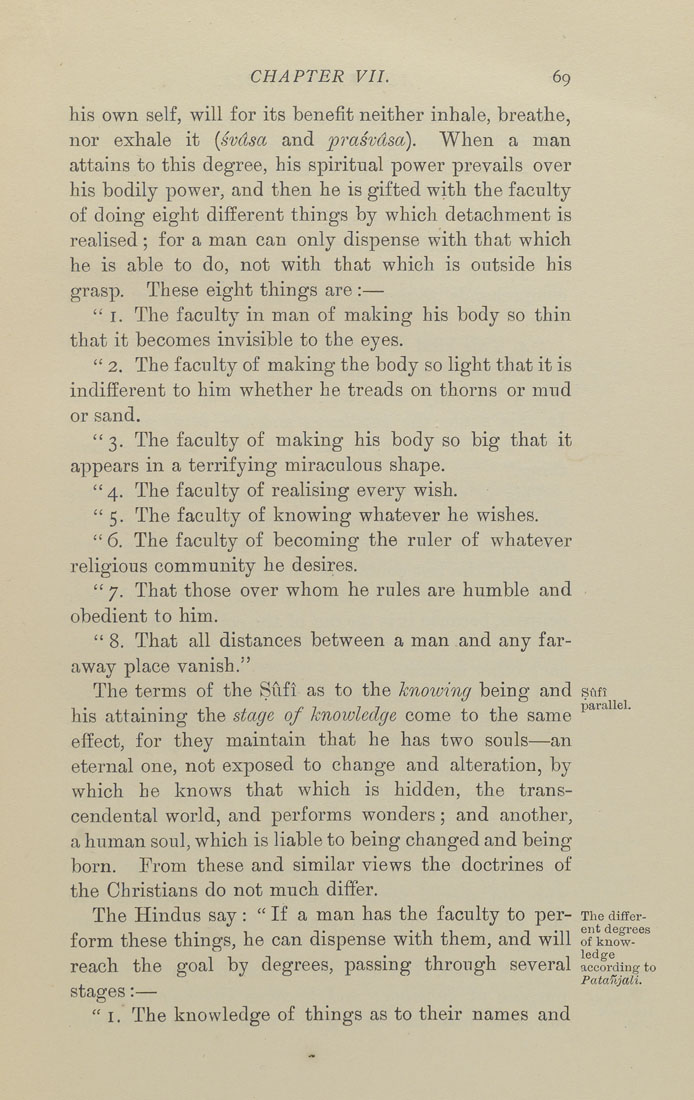Bīrūnī, Muḥammad ibn Aḥmad, Alberuni's India (v. 1)
(London : Kegan Paul, Trench, Trübner & Co., 1910.)
|
||
|
|
|
|
| Page 69 |

CHAPTER VII. 69 his own self, will for its benefit neither inhale, breathe, nor exhale it (svdsa and prasvdsa). When a man attains to this degree, his spiritual power prevails over his bodily power, and then he is gifted with the faculty of doing eight different things by which detachment is realised; for a man can only dispense with that which he is able to do, not with that which is outside his grasp. These eight things are :— "I. The faculty in man of making his body so thin that it becomes invisible to the eyes. " 2. The faculty of making the body so light that it is indifferent to him whether he treads on thorns or mud or sand, "3. The faculty of making his body so big that it appears in a terrifying miraculous shape. " 4. The faculty of realising every wish. " 5. The faculty of knowing whatever he wishes. " 6. The faculty of becoming the ruler of whatever religious community he desires. " 7. That those over whom he rules are humble and obedient to him. " 8. That all distances between a man and any far¬ away place vanish." The terms of the Sufi as to the knoioing being and sfifi his attaining the stage of knowledge come to the same ^^^^ effect, for they maintain that he has two souls—an eternal one, not exposed to change and alteration, by which he knows that which is hidden, the trans¬ cendental world, and performs wonders; and another, a human soul, which is liable to being changed and being born. From these and similar views the doctrines of the Christians do not much differ. The Hindus say : " If a man has the faculty to per- The differ- f orm these things, he can dispense with them, and will of know- reach the goal by degrees, passing through several according to Pataiijali. stages:— " I. The knowledge of things as to their names and |
| Page 69 |







